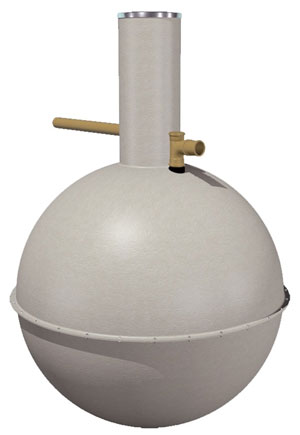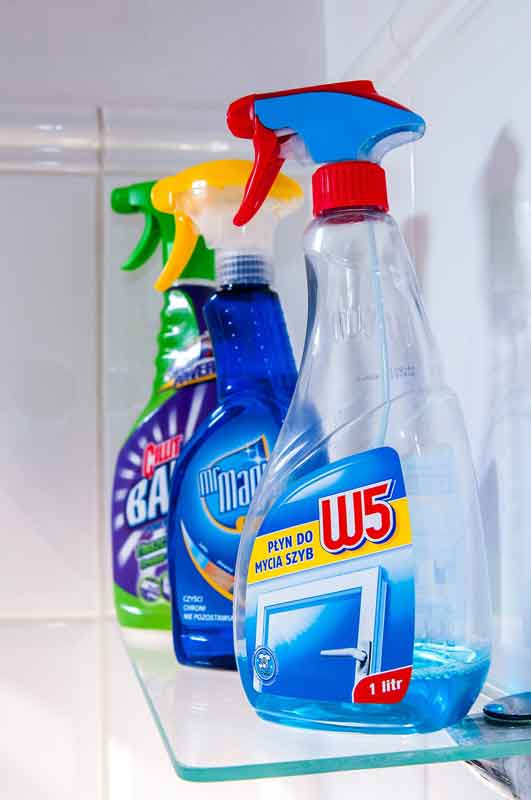There are numerous theories, thoughts and myths surrounding which septic tank cleaning products can and can’t be used in homes with septic tanks.
Here at Drainage Superstore, we’ve put together some guidance on septic tanks and cleaning products, to help clear up some of the confusion.
Here’s what we’re going to cover.
Table of contents:
- Why cleaning products can affect your septic tank
- What cleaning products can I use with a septic tank?
- Homemade septic tank cleaning products
Why cleaning products can affect your septic tank
When considering cleaning products, it is really important to consider the effect they may have on your septic tank. Too many chemicals can disrupt the chemical balance within your septic tank, and this can have major consequences.
A number of household chemicals are fine, but there are some chemicals that can cause damage to your septic tank and potentially even kill the bacteria that breaks down solids within your septic tank.
If the bacteria within your septic tank are killed, major problems can occur, including the tank clogging up, groundwater pollution and more.
Another effect of using harsh chemicals within a drainage system that uses a septic tank is that the chemicals can leach out into groundwater. This can have serious effects on wildlife and surrounding ecosystems.
What cleaning products can I use with a septic tank?
Generally, multipurpose household cleaners are fine to be used in homes with a septic tank, but conservative use is key. Ensure your multipurpose surface cleaners and laundry cleaners are mild, and ideally phosphate-free, as these products will not contain the harsh chemicals that typically damage bacteria within your septic tank.
However, it is important to note that overuse of any chemicals can cause issues, so always use them in moderation.
Household bleach shouldn’t have much of an adverse effect on the bacteria within the septic tank, as the chemicals are generally in low quantities, and are not strong enough to affect the bacteria.
However, you should avoid any bleach that is extra strong, or with a higher strength than a typical household bleach. Additionally, as with all chemicals, try to only use household bleach in moderation.
Similarly to bleach, products that contain ammonia should be fine to use with a septic tank, as long as they are only used occasionally and in moderation.
Liquid drain cleaners are generally fine to use as a one-off occasion, as they should become quite diluted, reducing the impact they can have on the bacteria within your septic tank.
However, we would not recommend using foaming drain cleaners or solid drain cleaners. What’s more, drain cleaners should not be used regularly on a weekly or monthly basis, as the chemicals are extremely caustic.
Water-based cleaners are generally absolutely fine to use with septic tanks, as water is the main ingredient, diluting any chemicals that could harm bacteria. To see if a cleaning product is water-based, take a look at the ingredients – water will be the first ingredient.
When considering household detergents, we’d always recommend choosing products that specifically have a label stating they are safe to be used with septic tanks.
Moreover, always try to choose eco-friendly products wherever possible, as these have been developed to have minimal impact on the environment, which means they typically have weak or no chemicals that could damage the bacteria within septic tanks.
Homemade septic tank cleaning products
If you’re unsure about using cleaning products with your septic tank or are looking to reduce the number of chemicals used within your home, there are several cleaning products that you can make yourself using everyday items.
Check this out:
Instead of using a chemical drain cleaner regularly, it is quick and easy to make a drain cleaner that doesn’t damage your septic tank. Simply pour ½ a cup of baking soda down the drain, followed by a cup of white vinegar. Leave the mixture to foam for a number of minutes, and then pour a gallon of boiling water down to flush the drain.
It is also possible to clean toilets with homemade cleaning products instead of stronger chemical cleaners. There are a number of different options available, including sprinkling baking soda in, and then adding vinegar, before using a scouring brush to clean it, or mixing baking powder with liquid soap to scrub the basin clean.
For products that are used to clean baths and tiles, there are a number of household products that can be used. Simply sprinkle with baking soda and scrub with a damp sponge, use diluted vinegar, or even apply vinegar to a sponge to wipe the surfaces, and apply baking soda after for maximum effect.
If you have any questions or queries about septic tanks, and how to prevent issues from occurring within your septic tank, feel free to call our team on 01752 692 221 or use the live chat and they will be more than happy to help.
















